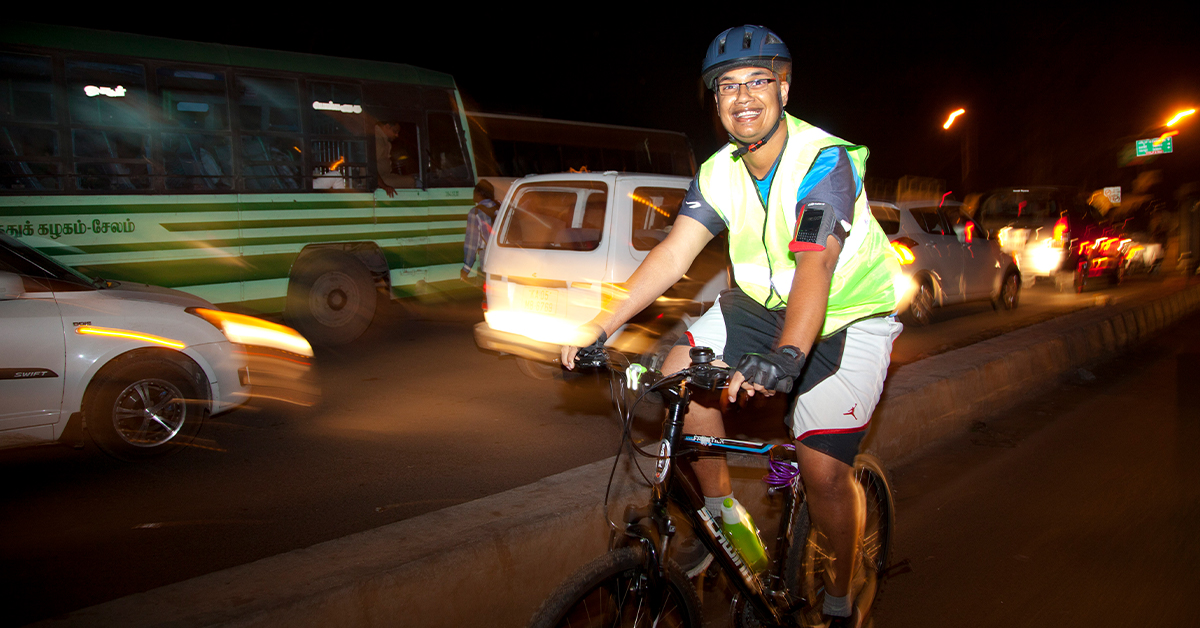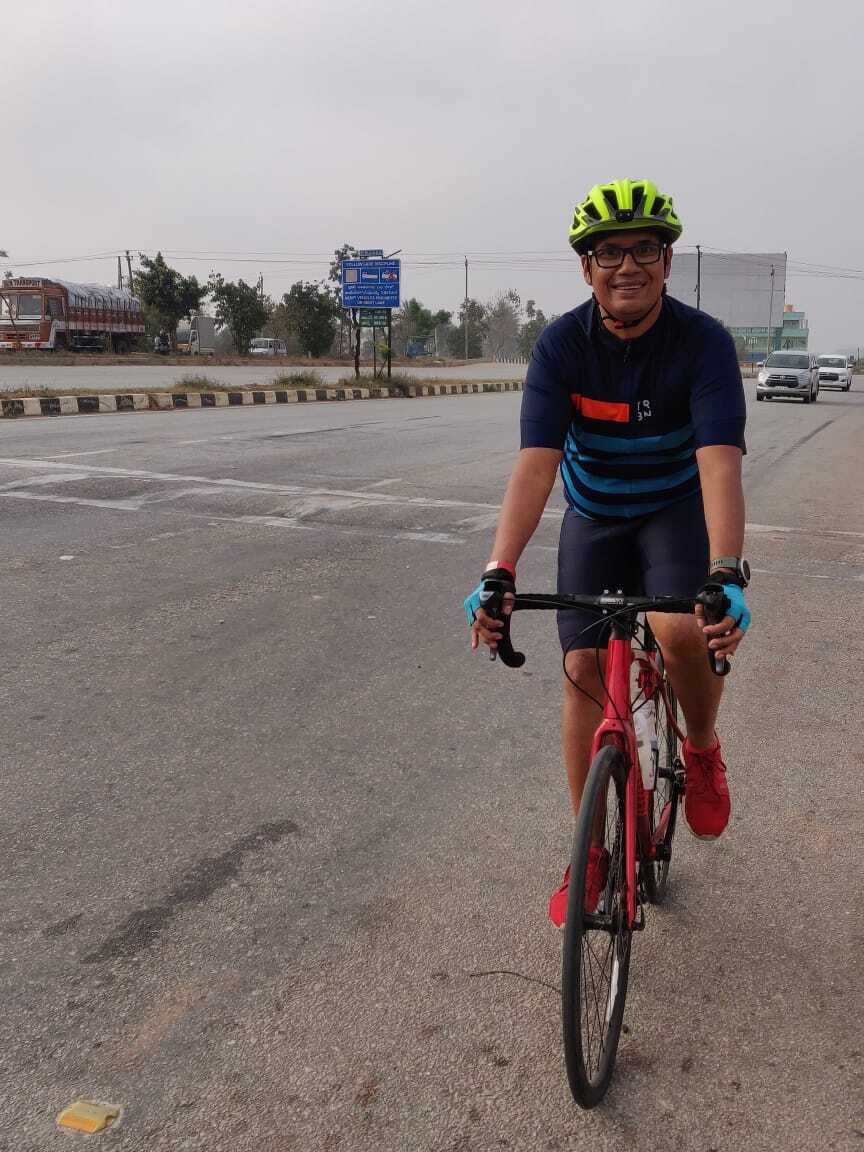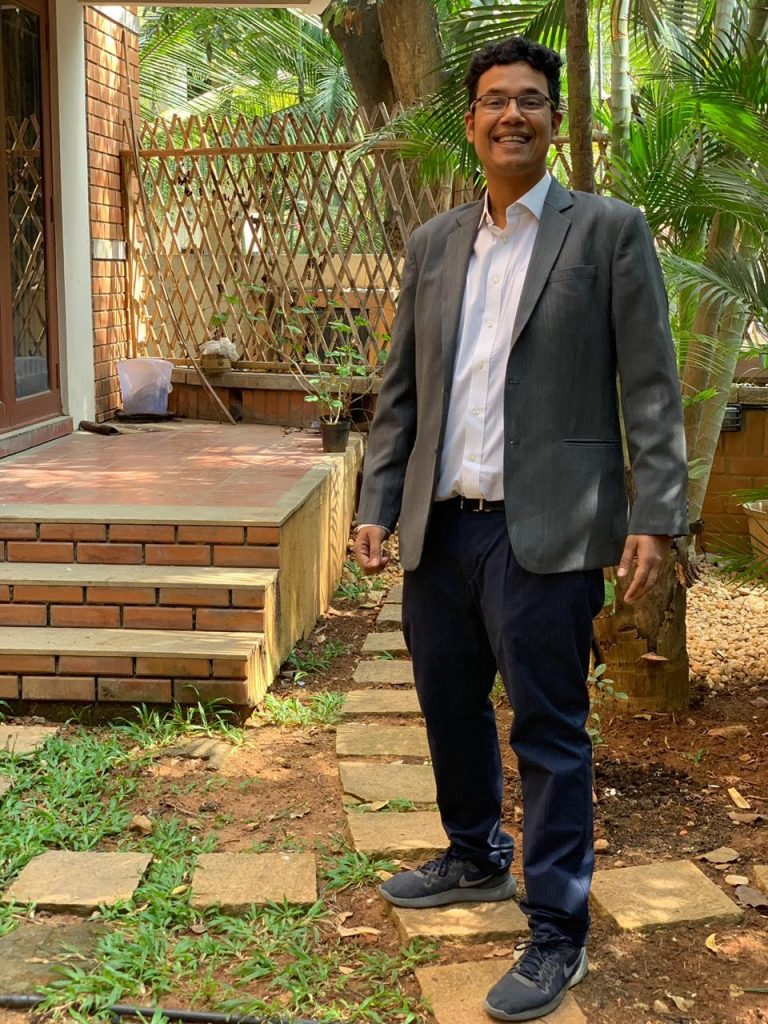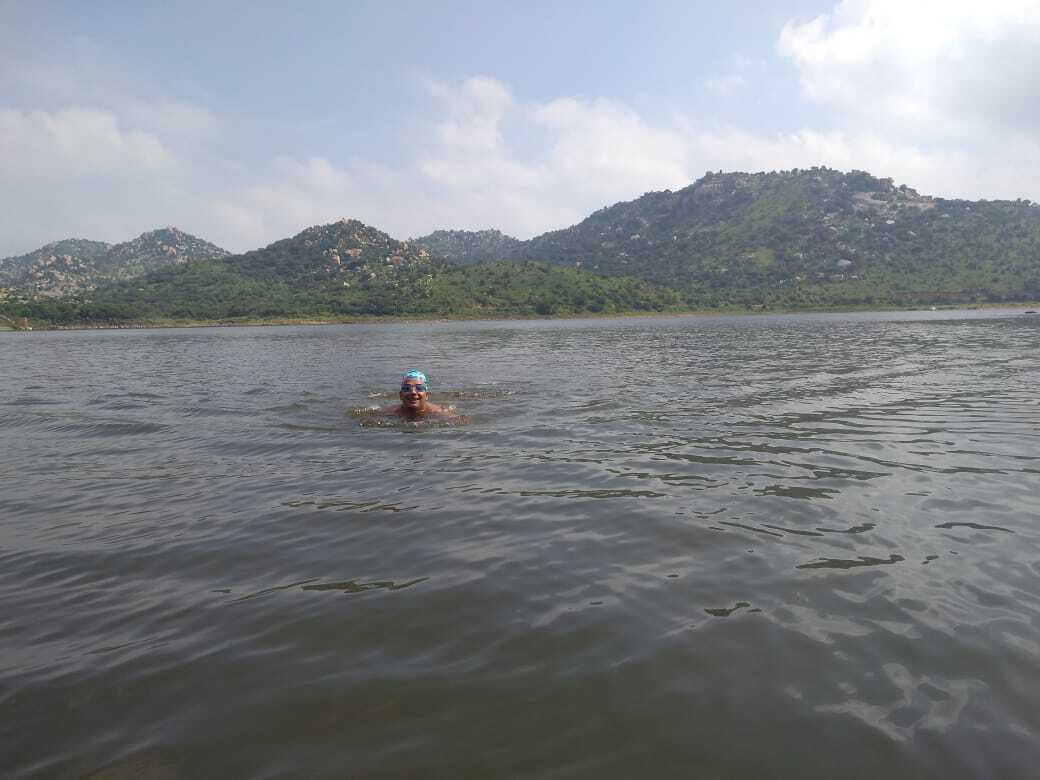Featured
Aditya Mendonca: From being diagnosed with type 2 diabetes to competing in triathlons

Endurance sports have seen a recent uptake in India, with events such as the Ironman 70.3 taking place in Goa. Many home-grown brands may also see this as an opportunity to sponsor these events to help athletes compete in their favourite events.
Aditya Mendonca is a triathlete who has competed in many such events despite living with type 2 diabetes. In conversation with The Bridge, he spoke about his journey into fitness and promoting awareness on diabetes using the #diabetictriathlete.
 Aditya cycling 100km
Aditya cycling 100km
Being diagnosed at the age of 18, Aditya did not lead an athletic lifestyle, aside from some school sports. He did not need insulin but did require other medication to help him manage the condition. His first exposure to fitness was casually taking up cycling in 2013 which blossomed into a love for swimming in 2017 when he joined Olympian Nisha Millet’s swimming academy. Later the same year, he took up open water swimming under the guidance of Sucheta Burman, a professional open water swimmer from India. She sports the accomplishment of completing an open water swim of 81km. “Any swimmer might know that swimming for 1km might seem like a daunting task initially but the feeling after completing a successful 2.5km or 3km swim is worth the effort”, he said.
To further develop his passion for endurance sports, he purchased a cycle in 2019 and was coached by Vivek Bhateja. Aditya then started with duathlons, a race that starts off with a leg of running, cycling and running again. He said, “Despite having diabetes, it is fun to know how much you can really push the limits of your body. Many diabetics are suggested to remain active, as it is a lifestyle disorder.” Physical activity for diabetics is often known to be long walks or aerobic exercise, but Aditya says that picking up a sport is a way to keep physical activity up and also enjoy the process. He went onto participate in Olympic sprint triathlons, which consist of 1.5km swim, 40km cycling and 10km run.
 Aditya Mendonca
Aditya Mendonca
However, being diabetic may put one at a disadvantage due to fatigue at the end of aerobic exercise. “Fatigue does set in at the end of a workout, especially in my experience as a type 2 diabetic. It is important to work with a professional and go through trial and error, to find out what works best for you, as no two people might be the same” he explained. Post workout nutrition plays an important part in every athlete’s lifestyle. Thus, it is important to ensure the quality of nutrition at the end of a workout is correct, as the body has higher insulin sensitivity after exercise.
Throughout his journey, Aditya has used the #diabetictriathlete on his social media platforms to spread more awareness about diabetes, and how can people remain active. Many often think that fitness lies in the gym. “Eating in moderation, regularly checking blood sugar are some of the many ways you can take care of yourself”, he said. Going out to eat, partying or even consuming processed foods once in a while does not hurt as long as everything remains in moderation and does not become a habit. “Taking care of your body, treating and respecting yourself is very important” said Aditya when emphasizing on the importance of fitness. There is no ‘one size fits all’ approach to fitness, as gyms are one among many options such as Zumba, CrossFit, running, strength training and more. He one day aims to participate in the Ironman triathlon and many other endurance sports events to inspire others to take up any form of sports and fitness to become their best version.
 There is no ‘one size fits all’ approach to fitness, as gyms are one among many options such as Zumba, CrossFit, running, strength training and more.
There is no ‘one size fits all’ approach to fitness, as gyms are one among many options such as Zumba, CrossFit, running, strength training and more.
Aside from the physical and nutritional constraints, mental challenges are another hurdle when preparing for triathlons. Doctors may not be able to tell one everything after diagnosing them with diabetes, which is why trial and error is the way to understanding oneself better. Diabetes can leave you feeling different moods, which might leave one scared they might have no idea on what is happening to their body. “You may not know what lies in the water while swimming in open waters, getting a cramp or many other factors. But one of the lessons it teaches you, is to overcome fear”, he said. Setting small goals and working with a coach can help one overcome many mental barriers when training for a triathlon or endurance sport, and this can translate into more confidence and other life lessons that can help one who is living with diabetes.
Though triathlons may have a small setback for those athletes who are used to doing workouts with their favourite music on, it is compensated by the nature of the triathlon. “There are many good quality races in India with many ascends and descents, and on some occasions even running beside hills and rivers. It is truly a beautiful scenic atmosphere”, he said. He also maintains environmental responsibility during open water swimming. “I carry gels during open water swimming due to the very humid climate, but ensure that they are not disposed in the sea after use.”
Aditya also had some advice for people who also live with diabetes. “Glucometers are your best friend. Make sure that you surround yourself with the right people. Setting short goals and working towards them is something that has worked for me, though it might not work for everyone. It is important to consult professional advise when necessary and experiment with trial and error to find out what works best for you.”

